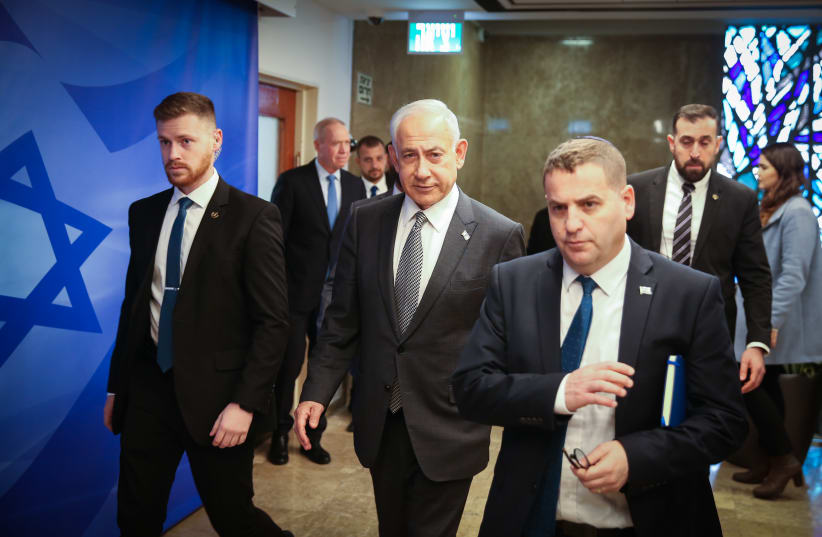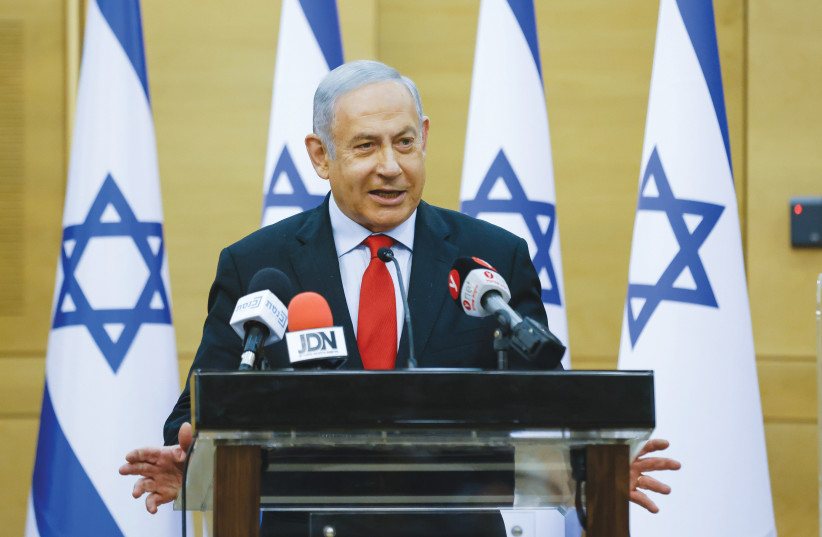In an exceptionally rare move, Israel’s security cabinet approved the transformation of ten illegal outposts into nine authorized West Bank settlements.
The Civil Administration Higher Planning Committee will also convene “in the coming days to approve the construction of new residential units in existing communities in Judea and Samaria,” the Prime Minister’s Office said.
The Planing Committee is likely to approve 10,000 new settler housing units, said Finance Minister Bezalel Smotrich, who is a member of the security cabinet.
The ministers authorized the outposts — despite clear objections from the United States to such actions — in the aftermath of Jerusalem’s terror attack at a bus stop on Friday that claimed three lives, including two children.
The move is likely to increase tensions between Israel and its western allies, which are already concerned by Prime Minister Benjamin Netanyahu’s new government’s plans for judicial overhaul.
Palestinian Authority presidential spokesperson Nabil Abu Rudaineh “condemned and rejected” the decision, which he said, was a “challenge to the American and Arab efforts and a provocation to the Palestinian people.”
It would lead, he warned, “to further tension and escalation. “Unilateral actions are rejected according to international resolutions and bilateral agreements,” he said. “All settlements are illegal and violate international law and the resolutions of the United Nations Security Council.”
Which outposts will be legalized?
The ten outposts slated to be legalized, many of which are in isolated areas of the West Bank are Avigayil, Beit Hogla, Givat Harel, Givat HaRoeh, Givat Arnon, Mitzpe Yehuda, Malachai HaShalom, Asa-el, Sde Boaz and Shaharit.
At least seven of them had already been slated for authorization since 2020, but this will accelerate the process.
Both Smotrich and National Security Minister Itamar Ben Gvir took responsibility for the authorizations, which they had pushed.
“The Israeli government is sending a clear message today to all our enemies: in the face of your attempts to harm us and weaken our hold on our land, we are deepening our roots, building and establishing settlements,” Smotrich said.
“Terrorism will not weaken us. On the contrary, whenever it tries to harm us, it will be answered with further construction and development in all parts of our country."
“We made a commitment before the elections, today we begin to fulfill it,” he said.
The security cabinet's decision, which increases Israel’s footprint in Area C of the West Bank follows the approval on Sunday by the Ministerial Committee Legislative Committee that would reverse the 2005 Disengagement Law as it applies to northern Samaria. The move would help pave the way for the eventual reconstruction of the four settlements that were destroyed that year.
The accelerated push for settlement expansion gave Netanyahu’s two ultra-right-wing coalition partners — Smotrich and Ben Gvir- a needed political victory to help their frustrations with regard to Netanyahu’s control over issues pertaining to the Israeli-Palestinian conflict.
Smotrich has yet to be given authority over civilian life in Area C and Ben Gvir does not appear to have been given the green light to carry out a Defensive Shield 2 style operation in east Jerusalem, even though the security cabinet did back a number of deference steps in east Jerusalem to prevent further terror attacks.
After the security cabinet meeting, Ben Gvir went to the Sde Baoz to celebrate the settlement residents.
Both he and Smotrich saw the measure as the execution of part of Netanyahu’s promise to them that he would allow for the authorization of some 70 outposts.
Today, said Ben Gvir in Sde Boaz, was a “big day” and “a very important step was taken. But I hope this is just the begging. We agreed with the Prime Minister on the continuation of the [outpost] regulation and that is what should be.”
Smotrich, Ben Gvir and the Israeli Right see the authorizations as an important step in maintaining Israel’s hold on Area C of the West Bank, which they believe should be part of Israel’s final borders.
The Palestinian Authority holds that Area C is part of the final borders of its state, is opposed to all Israeli settlement building and wants Israel to withdraw to the pre-1967 lines.
PA Prime Minister Mohammad Shtayyeh denounced the decisions as “a recipe for escalation” and said they pose a “threat to Palestinian existence.”
Shttayyeh urged the UN and US to intervene to stop unilateral actions that would undermine the two-state solution. He too said that all settlements are illegal.
PLO Executive Committee Secretary-General Hussein al-Sheikh said the Palestinian leadership will examine ways to respond to the Israeli decisions.
“This is considered an open war on the Palestinian people and requires immediate international intervention and binding decisions that would force the occupation to stop its aggression and measures,” al-Sheikh said in a statement.
The Palestinian Ministry of Foreign Affairs condemned the decisions as a “dangerous escalation of the aggression and open war against the Palestinians and Jerusalem.” The ministry warned that the decisions would lead to an “explosion” and called on the US to intervene to stop Israel from implementing the decisions.

